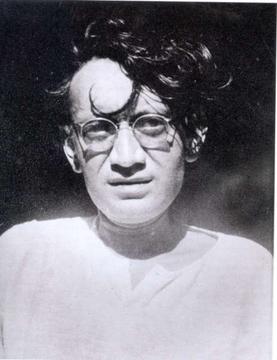
Maulana Syed Abul A'la Maududi was a great Islamic scholar and reformer though among the most misunderstood and controversial personalities of the 20th century. Born on 25 September 1903, the founder of the Islamist organization, Jamaat-e-Islami, he was a mufassir
#Twitter

...Islamist ideologue, philosopher, jurist, historian, journalist, activist and scholar active in British India and later, in Pakistan. While opposition to his Islamist ideology in the Indian Sub continent was and is widespread, he also slowly got a considerable fan following. 

Wilfred Cantwell Smith describes him as "the most systematic thinker of modern Islam”, though many wouldn’t agree with this description. His work encompasses different fields including Qur’anic exegesis, hadith, law, philosophy and history. He originally wrote in Urdu,
but since then most of his writings have been published in English, French, Arabic and many other Indian and foreign languages. He was the most prominent votary of political Islam and the ideology he espoused has got currency in many parts of the Muslim world.
To be fair his theory of political Islam has impacted Muslim revivalist movements across the globe and is now followed by many in Africa, Asia and Middle East.
The organization that he founded, jamaat-e-Islami, is present in the region across South Asia.
The organization that he founded, jamaat-e-Islami, is present in the region across South Asia.
It is surprising that Maududi initially opposed the concept of Pakistan and was based in Pathankot, in the Indian side of Punjab, but shifted to Pakistan as soon as Partition was formed. He was 1st recipient of King Faisal International Award for his service to Islam in 1979.
He was a prodigy. Following death of his father, he dabbled in journalism and was appointed editor of Al-Jamiat, mouthpiece of Jamiat Ulema when he was all of 17. While he couldn’t finish his formal studies, he was well versed in all Islamic faculties due to his personal efforts.
It is said that he completed Dars-e-Nizami in later years on his own efforts and studied as adab mantiq (logiq), and ilm e kalam. much later. While he might have not studied the subjects in a madrasa, he was better informed and had control of subjects than many known ulama.
He said: I do not have prerogative to belong to class of Ulema. I am a man of middle cadre, who has imbibed something from both the systems of education, the new and the old. By virtue of my inner light, I conclude that neither the old school nor the new is totally in the right.
Initially he was a modernist and didn’t sport beard. He lost faith in Congress and its Muslim allies as the party developed an increasingly Hindu identity. He began to turn more towards Islam, and believed that Democracy could be a viable option for Muslims in Muslim nations
During his stay in Bhopal, he was influenced by Niaz Fatehpuri. His writings and poetry were highly critical of conservative Muslims and the orthodox Muslim clergy. Fatehpuri soldiered on and had already begun to make a name for himself in literary circles when he met Maududi.
Maududi, though it is not said much was influenced by Maulana Abul Kalam Azad’s early writings. At that time Maulana Azad used to be a revolutionary of sorts and he supported not just Jihad in North East frontier Province, but also gave fatwa for Hijrat movement in 1920
...prompting thousands to migrate to Afghanistan. Maududi’s writings clearly show him being influenced by Maulana Azad. As he developed his political ideals, Maulana launched his journal Tarjuman al-Quran in 1932 and from 1932 to 1937 he began to develop his political ideas,
and turn towards the cause of Islamic revivalism and Islam as an ideology, as opposed to what he called "traditional and hereditary religion. It is said that the Hyderabad govt helped support the journal by buying 300 subscriptions which it donated to libraries around India.
Maulana in 1941 launched Jamaat e Islami. Though initially it attracted many known ulema like Maulana Amin Ahsan Islamhi, Maulana Manzoor Numani, Maulana Wahiduddin Khan and Maulana Abul hasan Ali Nadwi, these scholars left Jamaat one by one.
Maududi shifted his based to Achchrah in Lahore, Pakistan, after Partition. His career underwent a fundamental change, being drawn more n more into politics. Although his Jamaat-i Islami could never become mass based party, Maulana managed to have significant political influence.
It played a "prominent part" in the agitation which brought down Ayub Khan in 1969 and in the overthrow of Prime Minister Zulfikar Ali Bhutto in 1977. Maududi and the JI were especially influential in the early years of General Zia ul-Haq's rule and gave him religious sanctity.
JI supported Zeyaul Haq’s misadventures in Afghanistan that caused havoc in Pakistani society importing terrorism on its territory as well. He was among most prolific writers of our times n his writings have impacted generations and will continue to impact many more generations
His most popular books include Al-Jihad fil Islam, his six volume exegesis Tafhimul Quran, Khilafat o Malukiyat, Khutbaat, Purdah, Quran ki Char Buniyadi Istilahein, Risala Diniyat, Seerat e Sarwr e Alam, Tajdid o Ahiya –e-Deen and many more.
• • •
Missing some Tweet in this thread? You can try to
force a refresh












